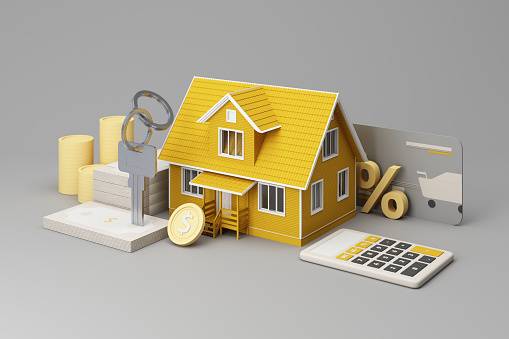Reasons a robust labour market could affect your mortgage interest rate
Reasons a robust labour market could affect your mortgage interest rate Over the past year, Canada’s job market has been red hot thanks to the country’s booming economy and the easing of pandemic lockdowns. Statistics Canada’s most recent data confirms this trend. In December, the national employment rate rose by 0.5% from November (representing an increase of 104,000 positions). Thus,+ totaling 3.7% growth over the course of 2022. ( a total of 701,000 new hires). So, the jobless rate fell 0.1% to 5%, surpassing the 4.9% recorded in June and July of last year for the first time ever. This metric reached its highest point since 1976 in May 2020. Thus reflecting how much employment has improved since the earliest days of the pandemic. While it’s great that there are so many job opportunities, rising inflation and interest rates might make life difficult for Canadians. This is especially for people who are already stretching their budgets to the limit. That’s because the Bank of Canada, the country’s central bank, wants to see economic activity cool before it can stop raising interest rates. A hot month for hiring isn’t helping the cause of keeping inflation in check. Economists expect an increase in interest rates Economists are predicting that the Bank of Canada will raise interest rates by 0.25 percentage points on January 25. This is in response to this recent data and last month’s stronger-than-expected inflation report. The Overnight Lending Rate, the benchmark against which other interest rates are measured, would rise to 4.5 percent. If this happened, marking its highest point since July 2007. Desjardins Economics Principal Economist Marc Desormeaux writes in a research note that the December jobs report does “tilt the odds in favour of one final 25 [basis point] rate hike from the Bank of Canada later this month.” Further highlighting the fact that it was the seventh consecutive month in which gains in hourly earnings for permanent employees exceeded 5%. Despite other economic indicators showing signals of slowing growth, the apparent strength in hiring likely means the central bank’s job isn’t done yet, he says. The governor has been stressing the importance of rebalancing the labour market for inflation normalisation in recent months. In a speech given in November, Bank of Canada Governor Tiff Macklem attributed the country’s high inflation rate to the historically low unemployment rate. Desormeaux is alluding to this speech. Macklem said at the time to a crowd at Toronto Metropolitan University. He said that the inability of business owners to find and keep enough workers was a symptom of the general imbalance. This imbalance is between demand and supply that was fueling inflation and hurting all Canadians. Why does Canada’s central bank have to cut inflation rates? Similarly to the labour market, inflation picked up speed when the economy was opened back up. Geopolitical issues, such as the crisis in Ukraine, have put increased pressure on the oil and gas sector. Moreover, snarls in global supply chain operations have contributed to shortages of many of the items Canadians use. As a result, shoppers have felt the pinch at the supermarket and the gas station. However, “shelter prices,” which do include mortgage interest payments, are included in the “basket of goods.” Based on this the CPI is calculated. Mortgage interest rates increased by 14.5% in November. Thus contributing to a 7.2% annual increase in this metric. The 11.4% gain in October was the highest monthly increase since February 1983. As a result of these factors, the Bank of Canada reported inflation of 6.8% in November, which is much higher than the target range of 2%. The Overnight Lending Rate is raised by the central bank if inflation rises over the target level. Variable mortgage rates and other variable-based lending products, such as home equity lines of credit, are directly affected by this. Bank of canada increases the rate A rise in interest rates has the effect of discouraging expenditure by both households and businesses. This in turn reduces overall inflation. Since March of last year, the Bank of Canada has increased its rate seven times, from 0.25% to its current level of 4.25%. It’s the quickest rate of increase recorded since the mid-1990s and the highest level at which this trend-setting rate has been since December 2007. The best five-year variable mortgage rate today is 5.35%, up from a record low of 0.85% in January of last year. The direction of the Bank of Canada’s monetary policy has an indirect effect on fixed mortgage rates. This is because of how the bond market reacts to it. For example, bond yields have been steadily rising throughout 2022. This has pushed the best five-year fixed mortgage rates up into the 4.5% range from the 2.34% range in January. After reaching a 40-year high of 8.1% in June, inflation has dropped thanks to the Bank’s proactive approach to rates. However, the progress has been sluggish. The prospect of a rate cut remains further off as long as economic data keeps surprising to the upside. Conclusion If the Bank of Canada were to raise interest rates by another 0.25 percentage points by the month’s conclusion, the national borrowing rate would reach 4.5 percent. Borrowers should prepare their finances for the highest rates in 16 years. As this will be the most expensive time to borrow since July 2007. Five-year insured variable rates are now at 4%, but should rates rise again. The borrowers may expect to see those rates rise to the 5.6-6.7% area. Connecting with a mortgage broker who can clarify your alternatives and provide individualised guidance is essential. Related posts 21 January 2023 Denied mortgage renewal: What happens next? Denied Mortgage Renewal:What happens next? If you want to keep paying down your mortgage after the current… 19 January 2023 Canada’s Bank Regulator Wants Tighter Real Estate Risk Rules Canada’s Bank Regulator Wants Tighter Real Estate Risk Rules More stringent rules on mortgage borrowing… 16 January 2023 Reasons a robust labour market could affect your mortgage interest rate Reasons a robust labour
Reasons a robust labour market could affect your mortgage interest rate Read More »









